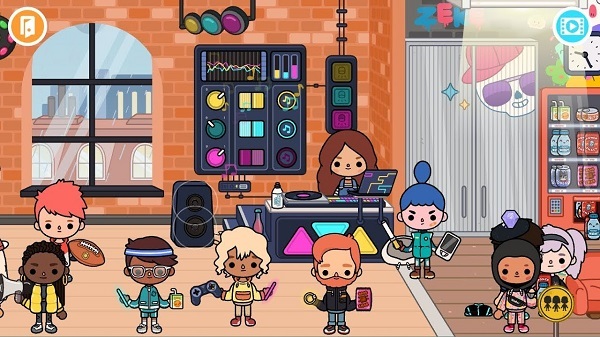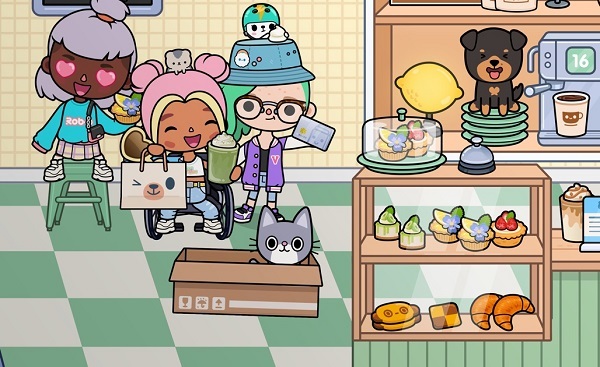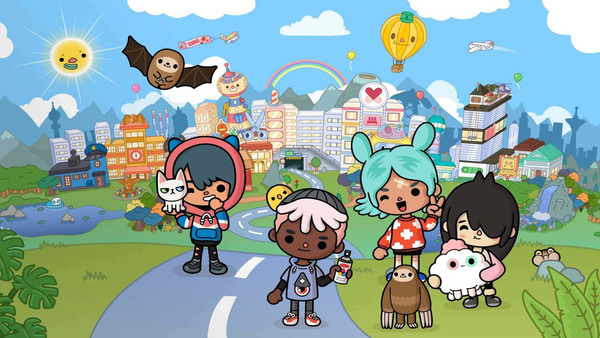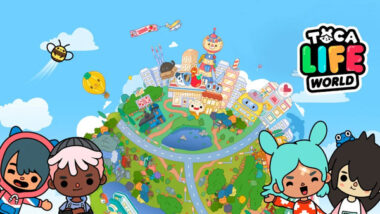Introduction
One of the unique and captivating aspects of Toca Life is the intricate web of character relationships it allows players to build. In a world where every character can interact, connect, and even develop storylines with others, managing and understanding character relationships becomes an essential part of enhancing gameplay. This article explores the often-overlooked issue of character relationships in Toca Life, including how to foster connections, resolve conflicts, and create narratives that bring your characters to life.
Understanding Character Interactions in Toca Life
Character interactions in Toca Life serve as the foundation for relationship-building within the game.

Character interactions in Toca Life serve as the foundation for relationship-building within the game.
The Role of Expressions and Gestures
Characters in Toca Life don’t speak but express emotions and intentions through gestures, making non-verbal cues essential.
Setting the Scene for Relationship Building
Creating the right environment-like a cozy café or a lively playground-can foster meaningful interactions between characters.
Creating Family Dynamics and Friendships
Establishing family and friend groups in Toca Life helps form a connected and engaging storyline.
Developing Family Bonds
Assigning roles, like parents and siblings, and arranging them within the home builds familial dynamics that feel natural.
Encouraging Friendships through Shared Activities
Have characters engage in shared activities like picnics, study sessions, or games to create lasting friendships.
Resolving Conflicts and Reconciliation
Conflict is a part of any relationship, and Toca Life allows players to simulate these moments and their resolutions.
Understanding the Purpose of Conflict in Storytelling
Conflict makes relationships more dynamic and adds depth, whether it’s a disagreement between friends or siblings.
Steps to Reconcile and Restore Friendships
After a conflict, players can have characters apologize, offer gifts, or plan a fun activity to rebuild their relationship.
Exploring Romantic Connections
Although the game focuses on family and friendships, subtle romantic connections can be implied between characters.
Setting Boundaries for Age-Appropriate Interactions
Toca Life is designed for younger players, so keeping relationships wholesome and friendly is key to maintaining the game’s spirit.
Implying Romance through Simple Gestures
Small gestures, like giving flowers or enjoying a sunset together, imply a bond without the need for overt displays.
Building Group Dynamics and Social Circles
Characters often interact in groups, which can lead to complex social dynamics within the game.
Establishing Group Roles
Assign roles within groups, like the leader, the creative one, or the supportive friend, to make group interactions diverse.

Assign roles within groups, like the leader, the creative one, or the supportive friend, to make group interactions diverse.
Managing Group Conflicts
Groups may experience disagreements, but resolving them by allowing each character to have a say keeps the peace.
Fostering Mentor and Student Relationships
Mentorship can add a valuable layer to character relationships, especially for younger characters learning from older ones.
Setting Up Mentor Characters
Older characters can act as mentors, providing guidance and engaging in activities that inspire younger ones.
Activities for Mentorship Bonding
From cooking lessons to storytime, these activities deepen the mentor-student connection and offer growth opportunities for both.
Creating Memorable Storylines Through Relationships
Relationships drive storylines, making them integral to creating a memorable experience in Toca Life.
Building Ongoing Narratives
Develop recurring themes or adventures where characters face challenges and grow together, adding layers to their relationships.
Using Milestones to Strengthen Bonds
Celebrating milestones, such as birthdays or graduations, makes relationships feel rewarding and grounded in the story.
Managing Rivalries and Competition
Rivalries add excitement and competition, but managing them effectively ensures they remain lighthearted and fun.
Setting Up Friendly Competitions
Use challenges like talent shows or cooking competitions to create rivalries, adding excitement to character interactions.
Keeping Rivalries Friendly
Friendly competition fosters growth and motivation, but maintaining positivity keeps it lighthearted and enjoyable.
Encouraging Empathy and Understanding
Toca Life can help players explore empathy and understanding by resolving misunderstandings in relationships.
Promoting Compassionate Interactions
When characters face challenges, encouraging empathy can teach players about understanding and kindness.
Handling Misunderstandings in a Positive Way
Characters can misunderstand each other, but a simple explanation and reassurance can often resolve issues gracefully.

Characters can misunderstand each other, but a simple explanation and reassurance can often resolve issues gracefully.
Conclusion
Building character relationships in Toca Life goes beyond arranging characters in a scene; it’s about creating connections that bring depth and meaning to each interaction. By understanding and fostering these relationships-whether familial, friendly, competitive, or mentoring—players can craft storylines that make their Toca Life world feel vibrant and engaging. Through empathy, communication, and creativity, the relationships you develop in Toca Life can elevate your storytelling, making every interaction count.


